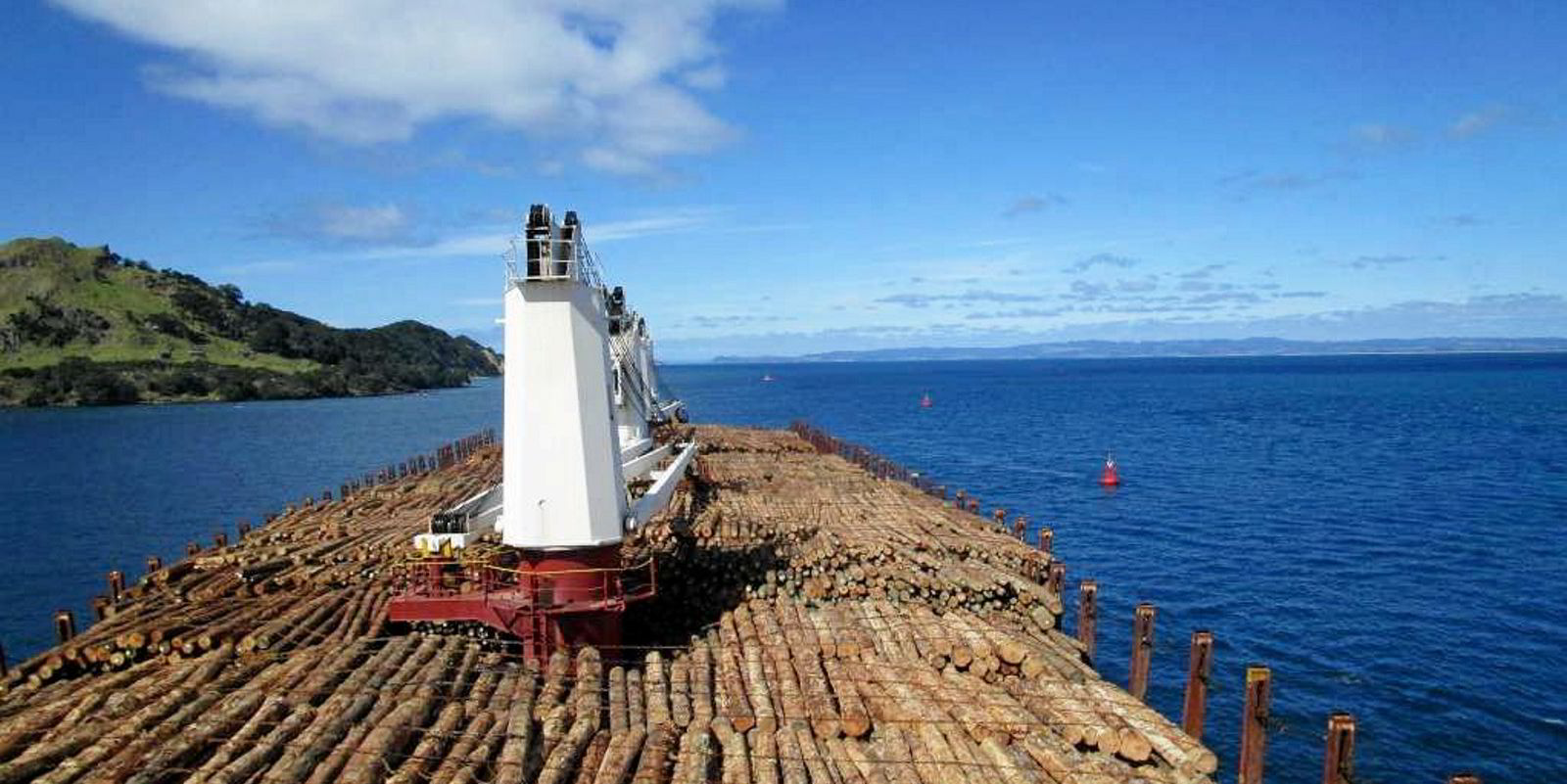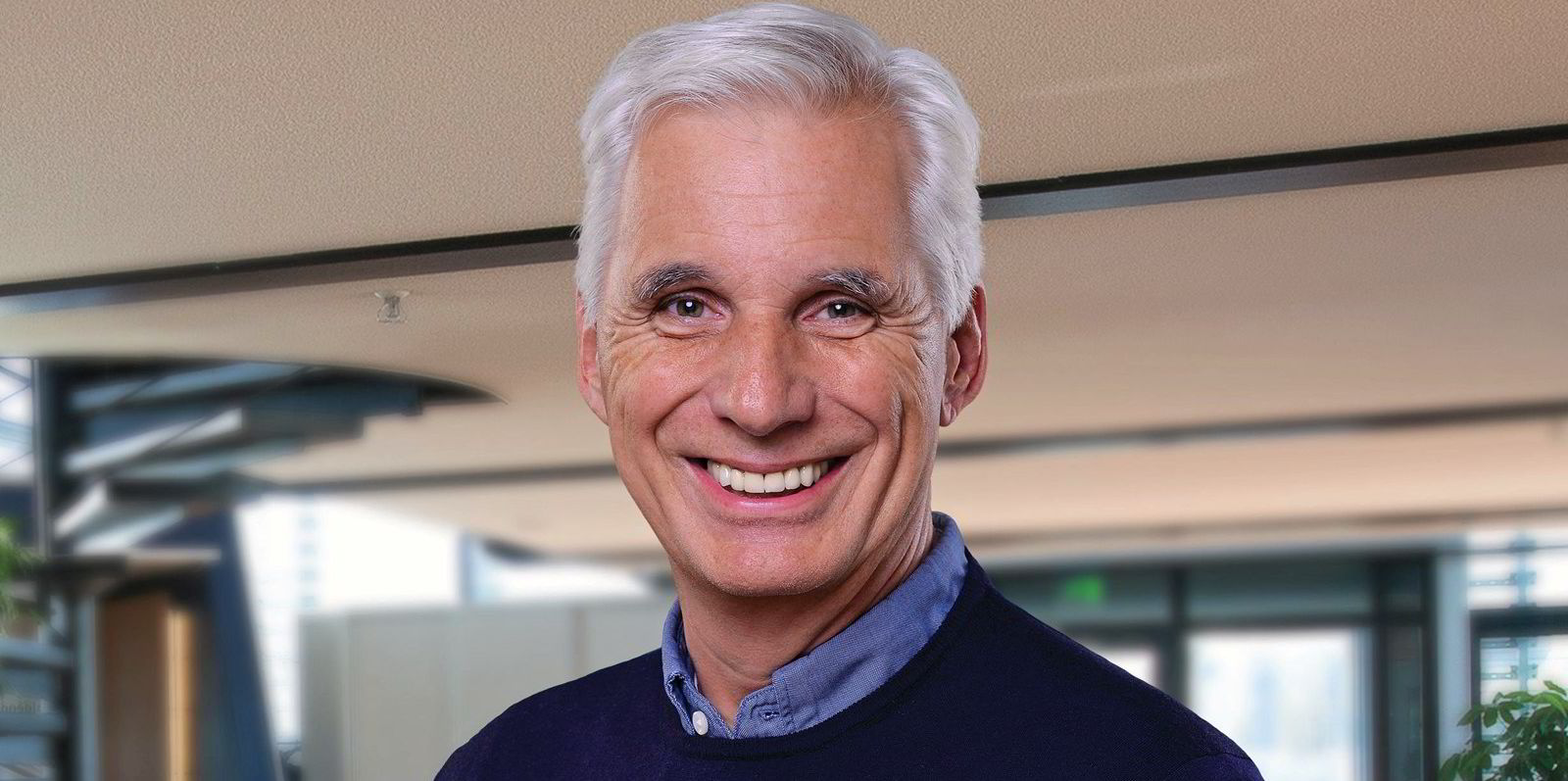Chinese and Singapore-based handymax owner Topsheen wants to achieve net-zero carbon emissions by converting a fleet of bulkers into seagoing kilns.
By 2025, Topsheen and parent Caravelle International Group want to have a fleet of 50 owned and chartered bulkers retrofitted to load green wood in West Africa and Indonesia, and use exhaust gases to turn it into seasoned timber, carbon credits and vinegar while underway to China.
It is hoping to win a Nasdaq listing through a tie-up with special purpose acquisition company (Spac) Pacifico Acquisition, advised by Spac specialist Chardan Capital Markets.
Topsheen founder Zhang Dong confirmed the plan to TradeWinds but declined to comment, pending a response from US securities regulators on the ongoing project.
The technology behind the deal was invented by his partner, Dr Zhang Guohua, principal of recently created parent group Caravelle, which calls it “carbon-neutral ocean technology” or CO-Tech for short. It has been tested on one ship and will be removed and installed on another during the fourth quarter.
The two Zhangs are not related.
By drying the green wood with engine exhaust gases recirculated through the cargo holds and eliminating landside drying, the method is supposed to cut not only costs and time from the supply chain, but carbon emissions as well.
That means earning tradeable carbon credits during the voyage.
The enclosed system also prevents the evaporation of wood vinegar, a salable byproduct of wood desiccation.
Caravelle believes the process will add $19.5m per year in revenue per vessel: $3.4m from the vinegar, $4.1m from the carbon credits, $12m from drying the timber on the 45-day voyage from Gabon and paying nothing for the heat. Shoreside kiln treatment takes an average of about 40 days.
Gabon-based timber trader and CO-Tech inventor Dr Zhang currently holds 76% of Caravelle and serves as chief executive. Singapore and Nanjing-based shipowner Zhang Dong of Topsheen has 10% and serves as chief shipping officer.
Caravelle currently charters in all its ships, handymaxes for African trades and mini-bulkers for Indonesia to China routes.
But by the end of 2023, it plans to own eight vessels. The target is a fleet of up to 50 CO-Tech-equipped ships by 2025, between 10 and 15 of them owned.
The company believes older vessels are most suitable to its conversion scheme, and expects secondhand prices to decline in 2023, allowing it to acquire suitable veteran ships for conversion at $5m to $10m each.
Caravelle mostly charters from the private side of Topsheen but also from third-party shipowners with whom Caravelle “maintains long-term cordial relationships”. These are typically taken on a one-year time charter but also through spot fixtures.
In 2020, Topsheen Shipping Group — before its merger into Caravelle — made a net profit of $5.8m on net revenues of $78.35m. In 2021, it was $10.3m on $121.96m. In the first six months of the present year, net income was $20.2m on $96.67m.
Shipping was ‘too profitable’
The CO-Tech plan, the subject of Dr Zhang’s 2018 dissertation at Paris Dauphine University, was granted approval in principle by class society DNV in January.
The seaborn timber-drying system was originally meant to go live in the third quarter, but had to be held back because Topsheen was making too much money.
“[Caravelle] postponed the launch because its traditional ocean shipping business line has been too profitable, and launching the CO-Tech business would interrupt the traditional ocean shipping business because it takes time to modify ships used in the former for use in the latter,” the company wrote.
Caravelle indirectly owns 100% of Dr Zhang’s Singapore Garden Technology, plus a majority of shares in Zhang Dong’s shipowning businesses Topsheen Shipping Group, Topsheen Shipping Singapore and Topsheen Shipping Bulk alongside minority shares still in the hands of their founder, Zhang Dong.
Another similarly named but privately owned entity — Topsheen Shipping Ltd — is the one from which Caravelle charters most of its ships. Zhang Dong told TradeWinds that he currently owns seven handymaxes through his private companies.
Spac deadline
In the planned merger that values the company at $850m, Pacifico Acquisition will contribute the $58m it raised in a September 2021 IPO. A $60m additional private investment in public equity funding has been cancelled.
Pacifico Acquisition, led by US resident Edward Cong Wang, has a deadline of 16 December to consummate the merger, with the possibility of extending it until March 2023.
Otherwise, the Spac IPO investors get their cash back and the organisers’ shares become worthless.




